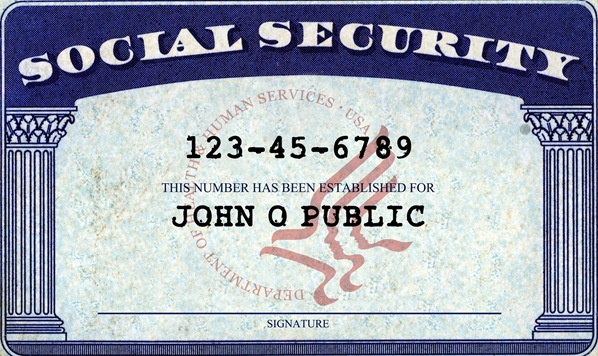
Before You Visit Your Social Security Office, Take This Document! So many adoptive families trek all the way to their local social service office to obtain their child’s social security card and are often erroneously turned away. Print the Child’s Citizenship Act of 2000. In the event of a refusal to provide your child’s social security card, you can remind them of the Federal Laws that address your child’s rights as a new citizen of the USA.
The Child Citizenship Act of 2000
December 1, 2000
On October 30, 2000, President Clinton signed into law H.R. 2883, the Child Citizenship Act of 2000. The new law, Public Law 106-395, amends the Immigration and Nationality Act (INA) to permit foreign-born children-including adopted children -to acquire citizenship automatically if they meet certain requirements. It becomes effective on February 27, 2001.
To implement the new law, the Immigration and Naturalization Service (INS) is currently drafting interim regulations, which will be published in the Federal Register before the law’s effective date.
Which Children Automatically Become Citizens Under the New Law?
Beginning February 27, 2001, certain foreign-born children-including adopted children-currently residing permanently in the United States will acquire citizenship automatically. The term "child" is defined differently under immigration law for purposes of naturalization than for other immigration purposes, including adoption.
To be eligible, a child must meet the definition of "child" for naturalization purposes under immigration law (1) and must also meet the following requirements:
- The child has at least one United States citizen parent (by birth or naturalization);
- The child is under 18 years of age;
- The child is currently residing permanently in the United States in the legal and physical custody of the United States citizen parent;
- The child is a lawful permanent resident;
An adopted child meets the requirements applicable to adopted children under immigration law (2):
- Acquiring citizenship automatically means citizenship acquired by law without the need to apply for citizenship.
- A child who is currently under the age of 18 and has already met all of the above requirements will acquire citizenship automatically on February 27, 2001.
- Otherwise, a child will acquire citizenship automatically on the date the child meets all of the above requirements.
Is the Law Retroactive? Is Automatic Citizenship Provided for Those Who Are 18 Years of Age or Older?
No. The new law is not retroactive. Individuals who are 18 years of age or older on February 27, 2001, do not qualify for citizenship under Public Law 106-395, even if they meet all other criteria. If they choose to become U.S. citizens, they must apply for naturalization and meet eligibility requirements that currently exist for adult lawful permanent residents.
Will Eligible Children Automatically Receive Proof of Citizenship-Such As Citizenship Certificates and Passports?
No. Proof of citizenship will not be automatically issued to eligible children. However, if proof of citizenship is desired, beginning February 27, 2001, parents of children who meet the conditions of the new law may apply for a certificate of citizenship for their child with INS and/or for a passport for their child with the Department of State.
What Will INS Do With Currently Pending Applications for Certificates of Citizenship?
For pending applications filed to recognize citizenship status already acquired, INS will continue to adjudicate such applications under the relevant law applicable to the case. For applications that required INS approval before an individual could be deemed a U.S. citizen, INS will adjudicate those cases under current law until February 27, 2001. On February 27, 2001, INS will adjudicate those cases under the new law and for applicants who automatically acquire citizenship as of the effective date, INS will issue certificates of citizenship reflecting the person’s citizenship as of that date.
Is Automatic Citizenship Provided for Children (Including Adopted Children) Born and Residing Outside the United States?
No. In order for a child born and residing outside the United States to acquire citizenship, the United States citizen parent must apply for naturalization on behalf of the child. The naturalization process for such a child cannot take place overseas. The child will need to be in the United States temporarily to complete naturalization processing and take the oath of allegiance.
To be eligible, a child must meet the definition of "child" for naturalization purposes under immigration law (3), and must also meet the following requirements:
- The child has at least one U.S. citizen parent (by birth or naturalization);
- The U.S. citizen parent has been physically present in the United States for at least five years, at least two of which were after the age of 14-or the United States citizen parent has a citizen parent who has been physically present in the United States for at least five years, at least two of which were after the age of 14;
- The child is under 18 years of age;
- The child is residing outside the United States in the legal and physical custody of the United States citizen parent;
- The child is temporarily present in the United States-having entered the United States lawfully and maintaining lawful status in the United States;
- An adopted child meets the requirements applicable to adopted children under immigration law (4);
If the naturalization application is approved, the child must take the same oath of allegiance administered to adult naturalization applicants. If the child is too young to understand the oath, INS may waive the oath requirement.
– INS –
1 Section 101(c) of the INA. The INA is on the INS Web site: http://www.ins.usdoj.gov.
2 Section 101(b)(1) of the INA.
3 Section 101(c) of the INA.
4 Section 101(b)(1) of the INA.
.jpg)